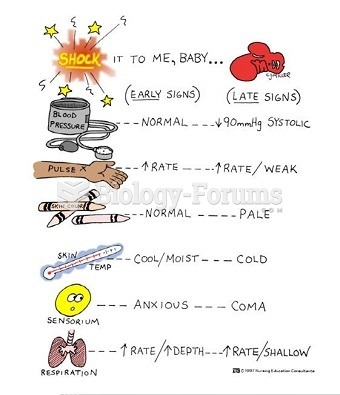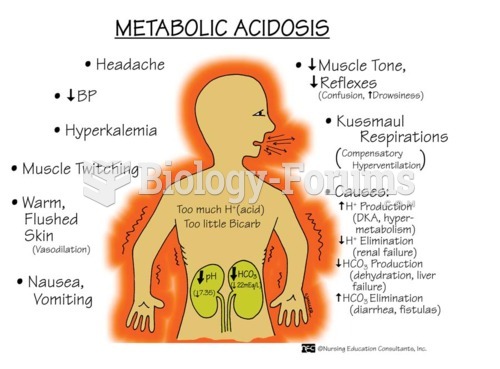Answer to Question 1
3
Rationale 1:Rapid, shallow respiratory effort is the effectof shock on the respiratory system.
Rationale 2:The effects of shock on the neurologic system are restlessness, anxiety, lethargy, and confusion.
Rationale 3: Effects of shock on the metabolic system include low temperature, thirst, and low urine output, as well as acidosis.
Rationale 4: The effects of shock on the cardiovascular system include tachycardia, thready pulse, low cardiac output, and low blood pressure.
Global Rationale: Effects of shock on the metabolic system include low temperature, thirst, and low urine output, as well as acidosis. Respiratory effects include tachypnea, or shallow respirations. The skin will feel clammy and cool, and will be pale. Neurologic findings include restlessness, anxiety, lethargy, and confusion; cardiovascular effects include tachycardia, thready pulse, low cardiac output, and hypotension. Rapid, shallow respiratory effort; restlessness, anxiety, and confusion; and tachycardia and hypotension are not metabolic symptoms.
Answer to Question 2
3
Rationale 1: Behavior changes are some of the earliest symptoms.
Rationale 2:Thirst is a common complaint but behavior changes are some of the earliest symptoms.
Rationale 3: Behavior changes are some of the earliest symptoms, and can include restlessness, anxiety, confusion, depression, and lack of interest.
Rationale 4: Behavior changes are some of the earliest symptoms.
Global Rationale: Behavior changes are some of the earliest symptoms, and can include restlessness, anxiety, confusion, depression, and lack of interest. Along with these, other symptoms will vary among the different types of shock, and can include complaints of thirst; cool, clammy skin that is pale; and feelings of weakness or sickness. Complaints of nausea, thirst, and pale skin would not be the earliest symptoms.







